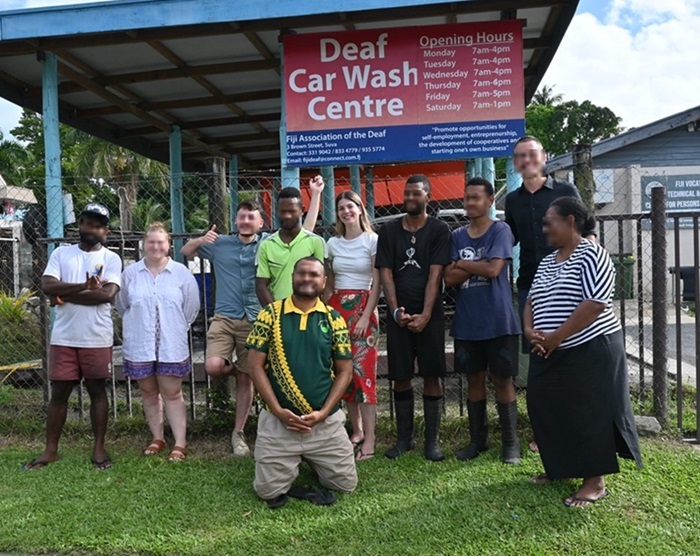Equity in education matters
Equity is about just and fair inclusion and creating an environment in which everyone can participate on the same basis and reach their full academic potential.
The Access and Disability Service at the Australian Catholic University (ACU) strives to ensure that students who have a temporary or ongoing health condition, mental health condition, disability, are neurodivergent, or have significant carer responsibilities, can participate fully in the ACU experience.
By working with students, academics and the university, they are empowering students to take on every opportunity through the provision of appropriate reasonable adjustments. It is with these provisions that one of their students, Brielle Riza, was able to engage in the Study Experience in Fiji.
Brielle had an amazing experience, and has kindly shared her experience with us.

Brielle's Story
My name is Brielle Riza, I am hard of hearing that has hearing aids and use Auslan when needed. I work with young people in Mackillop Family Services for last 6 years that leads me to the passion to study youth work. I was studying for a Bachelor of Youth Work at Australian Catholic University. I decided to go on this study trip related to my youth work course, as we will be working with young Fijian people and to learn the cultural difference between Australia and Fiji.
It was my first time overseas but wasn’t my first study trip as I did my study trip in Western Australia for 3 weeks working with Aboriginal people to live in their daily life and culture in 2014. I had never been to Fiji, so it was my first-time visiting Fiji and staying with host family.
The highlight in Fiji was the village, and I stayed in the Nabalasere village for 4 days. It was a fantastic experience to live in their day-to-day life, cultural differences, welcoming to outsiders into their village, kava and connecting with families in different houses. Staying with the host family was very interesting. I never stayed with a host family, but we connected straight away, and the communication wasn’t hard as they can speak English. However, the accent can be challenging because I am hard of hearing and trying to understand when communicating. I did sometimes have to communicate without having my interpreters around. The families were terrific and would try their best to communicate with me when I didn’t understand. I managed to overcome it and showed them what I could do. I received a beautiful message from one of the members of Think Pacific from the women in the village who told them how they felt after meeting me. They said that usually when they see a deaf person, they first see limitations and barriers, but they saw me just “going out and climbing the mountains” and being independent.
I learnt that Fiji is a developing country, and more things need to improve for young people. Like breaking the barriers and getting more support for people with disabilities that will be applied in my studies. The biggest culture shock was the village and how welcome people were. There were special guests who could only come through one door and were not allowed to sit near the village chief. Drinking kava is part of their culture. Kava is a yum! I came home to Australia with the skills to be more aware of developing countries and make kava from scratch. I already had skills working with young people but also aware that there are a lot of things that developing countries need to learn such as mental health, advocacy, and gender equality. I would love to work in developing countries, and I am hopefully moving to London so I can travel around developing countries to volunteer to make changes. Fiji really changed my mindset.
I am very grateful for the experience which was made accessible by ACU’s Access and Disability Service providing Auslan Interpreters to accompany me to Fiji.
April 2024

